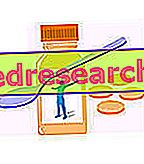Definition
A milk allergy is defined as an abnormal and exaggerated immune response to the body following the ingestion of milk or dairy products in general. Normally, when it comes to milk allergy, it refers to cow's milk; however, many people are also allergic to goat's milk, sheep's milk and buffalo milk. Still, some children who are allergic to cow's milk are also affected by soy. Milk allergy is one of the most widespread pediatric allergies, which often tend to resolve within the child's three years of life.
Causes
Milk allergy, as is the case with allergies in general, sees the triggering cause of a malfunction of the immune system, which identifies milk proteins as substances harmful to the body (allergens), therefore to be eliminated.
- Risk factors: artificial breastfeeding, atopic dermatitis, familiarity
Symptoms
The symptoms of milk allergy occur after a few minutes or a few hours from the consumption of milk or derivatives: intestinal colic, abdominal cramps, diarrhea, dyspnoea, rash, watery eyes, urticaria, blood in the stool, cough and vomit most common symptoms.
- Complications: constriction of the airways, flushing of the face and, in the most serious cases, anaphylaxis (dangerous reaction to food, which can induce death by respiratory incapacity)
Information on Milk Allergies - Drugs for the Treatment of Milk Allergy is not intended to replace the direct relationship between health professional and patient. Always consult your doctor and / or specialist before taking Milk Allergy - Milk Allergy Medication.
drugs
Before treating medications and useful treatments to combat the symptoms of milk allergy, let's take a step back to avoid confusing this condition with milk intolerance: while allergy manifests itself with the development of antibodies against proteins milk (only a very small quantity of product is needed to trigger the immune reaction), milk intolerance consists of the lack of an enzyme (lactase), involved in the digestion of lactose (it does not affect the immune system).
Fortunately, it is observed that most milk allergies arise at birth, or a few months later, but tend to regress spontaneously at the age of three; however, milk allergy can last a lifetime.
However, the only way to prevent milk allergy is to completely deprive all foods containing milk or milk derivatives from the diet : clearly, considering that many food products are formulated with cow's milk, you risk, unintentionally, to take them, therefore favor an allergic reaction (in sensitive subjects). For this reason, milk allergy sufferers must pay particular attention to the list of ingredients on the label.
When a milk allergy involuntarily consumes dairy products, the body, recognizing milk proteins as allergens (harmful substances), triggers a violent immune reaction against them: the administration of antihistamine drugs is the therapy of choice to lighten the symptoms and mitigate the discomfort caused by milk allergy.
As previously analyzed, the body of a person who is particularly sensitive to milk can trigger an extremely violent reaction following his ingestion, such as to endanger even his own life. We are talking about anaphylaxis, a clinical emergency in which the patient must be promptly treated with an adrenaline injection.
The research is testing a new method (immunotherapy) for the treatment of food allergies in general (including milk allergy), which will be tested shortly.
The only cure for milk allergy is the absolute removal of milk and dairy products from the diet. The medicines listed below are useful for lightening the symptoms, but NOT for treating milk allergy.
Antihistamines :
- Levocetirizine (eg Xyzal, Levocetirizina SAN): the antihistamine drug is indicated to lighten hives and itching that often accompany allergic milk reactions. Take the drug at a dose of 5 mg, orally, in the evening. Consult your doctor before taking this medicine.
- Clemastina (eg Travegil): for the treatment of allergic reactions, including milk allergies, it is recommended to take the drug at an initial dose of 1.34 mg, to be taken orally in a double daily dose. Do not exceed 2.68 mg orally three times a day.
- Diphenhydramine (eg. Aliserin, Difeni C FN): anticholinergic and antihistamine drug particularly suitable for treating allergic reactions to milk and other substances in children. For children aged 1 to 12 years, it is recommended to take 5mg / kg / day or 150mg / m2 / day, by mouth or intramuscularly, splitting the load into several doses evenly distributed over 6-8 hours. Do not exceed 300 mg within 24 hours. In acute allergic reactions, it is possible to administer the drug intramuscularly or intravenously at a dose of 1-2 mg / kg (max. 50mg).
- Chlorpheniramine (eg Trimeton): for the treatment of uncomplicated allergic milk reactions, it is recommended to take the active ingredient at a dose of 5-20 mg, intravenously, intramuscularly or subcutaneously, in a single dose. Do not exceed 40 mg a day. The drug can also be found in the form of syrup, immediate or gradual release tablets. Consult your doctor for the choice of the most appropriate pharmacological preparation. The drug can also be found in combination with glucocorticoids, to treat the most serious symptoms resulting from the ingestion of milk or derivatives in a person who is allergic to it.
- Bromfenidramina (eg Dimetane, Ilvin): start the therapy with a dose of drug equal to 4-8 mg, to be taken orally every 6 hours, or when necessary. Some patients can take the drug only twice a day: the dosage should in fact be established on the basis of the severity of the allergy and on the response of the patient. For slow-release tablets, take 6-12 mg of active once or twice within 24 hours, or as needed. Do not exceed 24 mg of active per day. It is also possible to take the drug intramuscularly or intravenously (generally reserved for severe cases): in this case, it is recommended to start therapy with a drug dose of 5-20 mg every 6 to 12 hours. Do not take more than 40 mg of parenteral medication. For children under the age of 12, the dose should be reduced: consult your doctor.
- Promethazine (eg: Promet NAR, Farganesse, Fenazil): an antihistamine drug indicated for allergic reactions to milk or other substances. Orally or rectally, take 12.5 mg of the drug before the meal and 25 mg in the morning, if necessary. Alternatively, take a single dose of 25 mg in the morning, or 6.25-12.5 mg of the drug three times a day based on the severity of the symptoms. Consult your doctor.
Glucocorticoids : indicated for the treatment of severe symptoms of milk allergy, which occur following the intake of milk or derivatives in an allergic person.
- Triamcinolone (eg Kenacort): for the treatment of allergic reactions due to the ingestion of milk, it is recommended to take the drug at the indicative dose of 8-12 mg per day, orally. Some patients require a higher dosage of the drug.
- Prednisone (eg. Deltacortene, Lodotra): to treat the symptoms of medium and severe entities associated with milk allergy it is recommended to take the drug at the indicative dose of 20-30 mg. Consult your doctor before taking this medicine. In case of anaphylaxis, take 50 mg of drug by mouth, possibly fractionating the load in several doses.
Catecholamines for the treatment of milk allergy complications : in those particularly sensitive to milk allergies, even a small quantity of dairy product ingested can trigger a frightening allergic reaction which, in the medical field, is called anaphylaxis . The first therapeutic measure to consider is the administration of adrenaline, to be carried out within the shortest possible time from the appearance of the first symptoms.
- Adrenaline or Epinephrine (eg Jext, Adrenal, Fastjekt): the drug is a powerful muscular vasodilator, useful for preventing airway obstruction in case of anaphylaxis, even in the case of severe allergic reactions to milk; patients who are predisposed to it should always bring with them an adrenaline syringe for emergency self-injection. For the dosage: read the article on drugs for the treatment of anaphylaxis.
PLEASE NOTE: even milk delactosate causes allergy in a milk allergy: the person is allergic to milk proteins, not lactose!



